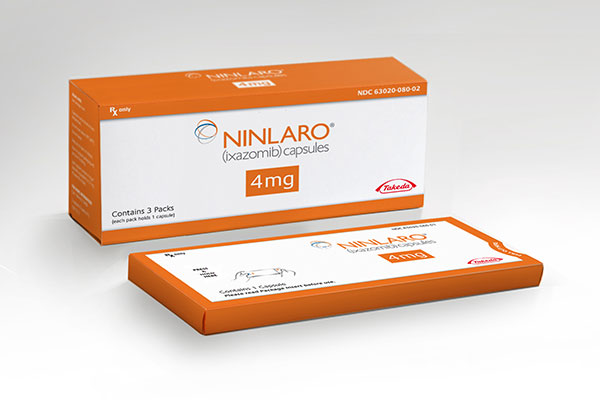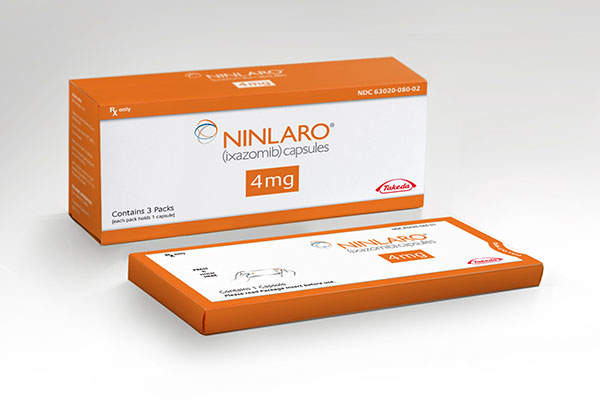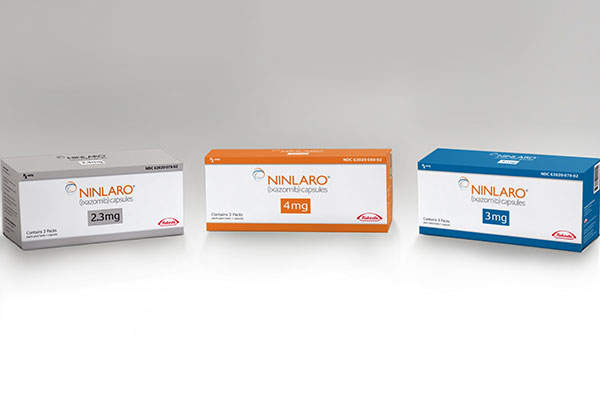
Ninlaro (ixazomib) is a proteasome inhibitor indicated for the treatment of multiple myeloma.
The drug was discovered, developed and marketed by Takeda Pharmaceuticals.
Ninlaro was granted orphan drug designation for the treatment of multiple myeloma in the US and Europe in 2011. Takeda submitted a new drug application (NDA) to US Food and Drug Administration (FDA) for Ninlaro for the treatment of multiple myeloma in July 2015.
In November 2015, the FDA approved Ninlaro in combination with lenalidomide and dexamethasone for the treatment of multiple myeloma in patients, who have received at least one prior therapy. This makes it the first and only FDA approved proteasome inhibitor in combination with another approved treatment for multiple myeloma.
Multiple myeloma
Multiple myeloma is a type of cancer that occurs due to formation of malignant plasma cells in the bone marrow. It weakens the immune system, causing bone or kidney problems.
According to the National Cancer Institute estimates, 26,850 new cases of multiple myeloma and 11,240 related deaths are estimated to be registered in the US in 2015.
Ninlaro mechanism of action
Ninlaro contains a reversible proteasome inhibitor that blocks multiple myeloma cells. It also obstructs multiple myeloma cells’ ability to grow and survive.
Ninlaro is available in the form of capsules for oral administration in three different doses including 2.3mg, 3mg and 4mg.
Clinical trials on the proteasome inhibitor drug
FDA approval for Ninlaro was based on results from a pivotal Phase III clinical trial known as TOURMALINE-MM1. It was a double-blind, placebo-controlled trial, which enrolled 722 adult patients with multiple myeloma.
Patients were randomised to receive Ninlaro plus lenalidomide and dexamethasone or a placebo, as well as lenalidomide and dexamethasone.
The results demonstrated that patients treated with Ninlaro in combination with lenalidomide and dexamethasone were effective in extending progression free survival (PFS) by 20.6 months compared to 14.7 months in participants treated with placebo plus lenalidomide and dexamethasone.
In addition, the study showed that patients treated with Ninlaro in combination with lenalidomide and dexamethasone survived without their disease worsening for a significantly longer time.
The most common side effects found in patients treated with Ninlaro included constipation, low blood platelet count, peripheral, nausea, peripheral oedema, vomiting and back pain.
Ninlaro is being investigated through four other Phase III TOURMALINE clinical studies, which enrolled more than 3,000 patients from 40 countries.
Marketing commentary
Headquartered in Osaka, Japan, Takeda Pharmaceuticals is a leading research-based global pharmaceutical company. The company holds global marketing rights of Ninlaro, which is expected to be launched in the US market in December 2015.
Other medications approved for the treatment of multiple myeloma include Revlimid (Lenalidomide) developed by Celgene Corporation, Farydak (panobinostat) produced by Novartis and Biologics, and Kyprolis (carfilzomib) developed and manufactured by Onyx Pharmaceuticals and Ligand Pharmaceuticals.






